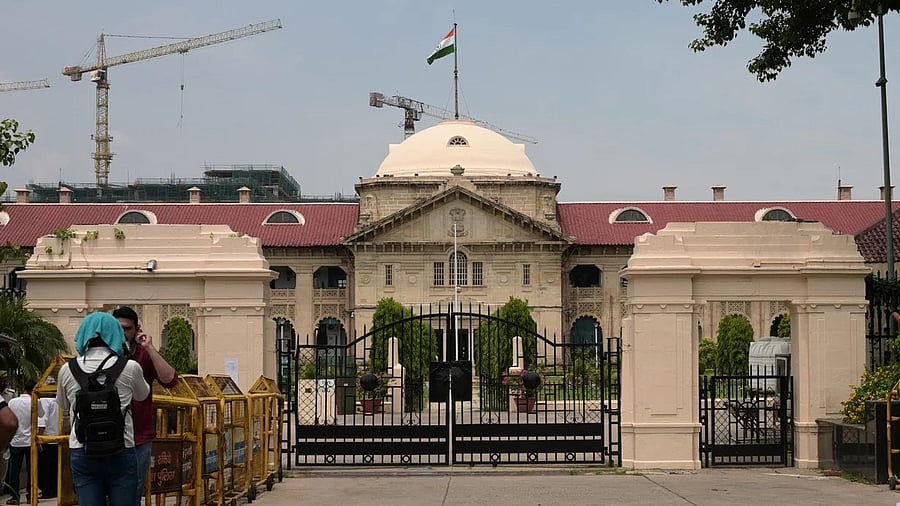
A general view of High Court of Allahabad.
Credit: iStock Photo
Lucknow: In a significant observation, the Allahabad High Court has said that even unsaid words could create or promote feelings of enmity, hatred and ill-will between religious communities.
A division bench comprising Justices JJ Mumir and Pramod Kumar Srivastava gave the ruling recently while dismissing a petition filed by one Arif seeking quashing of an FIR registered against him for sending an inflammatory message to individuals on their mobile phones following arrest of his (Arif) brother.
According to the prosecution, the petitioner, with a view to disturb communal harmony and to instill hatred with the malicious intention of outraging religious feelings of a class of citizens, sent the inflammatory post to different mobile phones, owned by locals of Chandpur in Bijnor district.
It was argued by the petitioner’s counsel that a bare reading of the entire post quoted in the FIR showed that it did not carry any inflammatory contents. It only showed resentment about his brother's arrest. It was also argued that the post showed that the petitioner had complete faith in the judicial process.
The post, it was pointed out, was not designed to disturb public peace, tranquility or communal harmony in any manner.
The court, however, said that the post quoted in the FIR might not speak ‘per se’ about religion, but definitely conveys an underlying and subtle message that his brother has been targeted in a false case, because of him belonging to a particular religious community.
‘’These unsaid words in the message prima facie would outrage religious feelings of a class of citizens hailing from a particular community, who would think that they are being targeted because of belonging to a particular religious community,’’ it added.
‘’Quite apart, and, even if one were to think that no religious feelings of a class of citizens or community have been outraged, per se by the WhatsApp message, it is certainly a message, which, by its unsaid words, is likely to create or promote feelings of enmity, hatred and ill-will between religious communities, where members of a particular community, in the first instance, could think that they are being targeted by members of another religious community by abusing the process of law,’’ the court said.
The court said that the matter required investigation and cannot be scuttled at an incipient stage, foreclosing probe that must be carried to its logical conclusion.